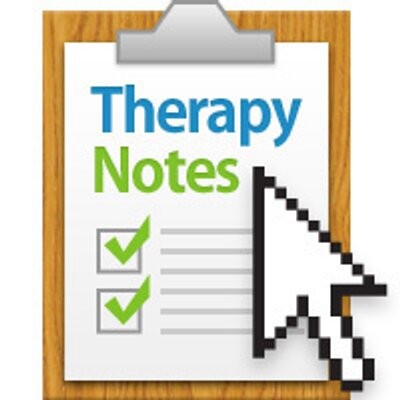Post Views: 922
- Home
- Podcast
Episode 165 | Insurance Considerations for Out of Network Providers

WITH MAUREEN WERRBACH
00:00
00:00
- Episode 165 | Insurance Considerations for Out of Network Providers 00:00
Share
Hey Group Practice listeners! In this episode, you’re getting a clip from my most recent training in my Exchange Membership on insurance and credentialing.
In this episode I cover:
- Billing insurance when you’re out of network
- Things to consider when you wan to be an OON provider
This episode is sponsored by TherapyNotes. TherapyNotes is an EHR software that helps behavioral health professionals manage their practice with confidence and efficiency. I use TherapyNotes in my own group practice and love its amazing support team, billing features, and scheduling capabilities. It serves us well as a large group practice owner.
Do you ever wish for a financial therapist who could relieve you from the last few months’ bookkeeping, talk you off the edge when you’re running into issues with Quickbooks, or help you work through a profit plan for growth? GreenOak Accounting does just that! GreenOak Accounting is an accounting firm that specializes in working with group practices. Their value goes WAY beyond bookkeeping; they can help you get on track for financial success. Schedule a free consultation by going to http://greenoakaccounting.com/tgpe
Transcript:
Maureen Werrbach
So this month in the exchange membership, I did our training on all things related to insurance credentialing and contracting. And in today’s podcast episode, I’ll be pulling out a clip from that training so that those of you who are not members of The Exchange can get a sneak peek into this month’s training.
This training is specifically for practice owners who are just in those beginning stages of thinking about adding or using insurance as a group practice, whether you’re an established practice owner or not. And this clip specifically is going to be pulling from the section of the training where I talk about billing insurance when you’re out of network. So this clip is specific to out of network billing and some things to consider and think about when wanting to be an out of network provider where you’re either submitting claims on behalf of the client, whether or not you’re going to accept assignment and what that means, and just a bunch of things specific to being out of network. We get lots of questions in the Facebook group and in our membership around how to be out of network, but also be accessible to clients, and how to best support clients when we are an out of network group practice. And so in this specific part of the clip, I’m going to be talking specifically to those practices that are doing out of network billing or are out of network and may be providing super bills, but maybe wanting to think about how to better support their clients through billing on their behalf or accepting assignment.
And so as I start this clip, think about those areas in terms of how you’re supporting your clients if you’re an out of network provider. And if you’re thinking about staying out of network as a good practice owner, and potentially being in network as a group practice just for your team, there’s going to be some things to consider when it comes to that as well.
So if you’re not yet a member, and you want to listen to this whole training or watch the whole training inside of the Exchange Membership, you can go to members dot the group practice exchange dot com to sign up. And in it, you will find hundreds and hundreds of videos and trainings and live Q&A’s that you can attend that are all related to group practice building–whether you’re in that first stage of starting or you’re an established, large seven figure group practice. We’ve got something for everyone in there. And I’d love to see you in there.
For those of you who are not in network with insurance or private pay, or if you are maybe a practice that does take some insurances, but not all of them, this slide is going to be related to insurances that you might be working with where you are not in network. You will still want to make sure that you have an NPI to and tax ID number that they have access to. You’re going to have to have your clinicians fill out a W9 form to give to the insurance companies that you’re not in network with. And you’ll see a lot of private pay practices will ask because they don’t realize this, that if a client submits their claims on their own, like let’s say they pay you out of pocket, they can take your super bill and then get reimbursed out of network reimbursement. And when they do that, it’s going to trigger the insurance company to reach out to you and have you fill out a W9.
So what we do is we have one w nine, that is filled out for the practice, and I have it on our shared Google Drive for all my staff to have. And my administrative team also has it. You only need one, it doesn’t need to be signed by every individual therapist. So I have one that every year I just update with a new date on there, and I fill it out with our organization’s information. What this does is it lets the insurance company know that you’re a legitimate company so that when the client is being reimbursed, or if you choose to accept out of network payment from insurance companies, they know where to send that.
So there are two things you can do as a provider who’s out of network, you can either charge the client and bill the insurance on their behalf. Or you can charge the client in full and give the client a super bill where they can do what they want. And let the insurance company know that they paid for a session and they can get reimbursed directly.
So if you want to, this is what we do, we we like being able to support clients by billing on their behalf and sending claims to insurance on their behalf. What we do is option number two here charging the clients in full. But I’m going to explain both options here, just because I think it’s really a great idea to know the level of support that you can provide when it comes to insurance reimbursement with clients, even if you’re an out of network provider.
So obviously, you can just charge out of pocket and not be involved with insurance at all and be private pay and not deal with insurance in any sort of level, right. And then you have these two options here. And one is where you actually take the insurance payment, the out of network reimbursement that that clients insurance allows. So what you would do is if you use an EHR, you are going to do what’s called accept assignment if you Google it. Or if you ask your EHR where the box is to accept assignment, they’re going to be able to show that to you. But it’s essentially one box. And I have it set up for any insurance that we’re out of network with–you can have it how do you say it like where it’s whenever you bill a specific insurance that you are out of network with, where you want to accept assignment, it’ll automatically trigger that box to be checked off for specific insurances. And you can have it unchecked for other insurances if you don’t want to accept assignments. So it’s nice because you don’t have to do it for each client, you can do it by insurance.
So like if you’re out of network with Blue Cross, but you want to accept assignment for any Blue Cross member, you can, you know, check that Accept Assignment button, and then anytime a client has Blue Cross, it’ll trigger that accept assignment option. And what this means is that you’re accepting the insurance company’s allowable amount. And you will bill the client the balance, you’ll be paid them by insurance and charge the client the difference.
And so what that means is, if the client has an auto network, their out of network benefits say that they accept 50%, right, the insurance will pay 50% of your rate. Okay, and let’s say it’s 150, that you charge, let’s make it 100, I’m not going to do complicated math without a calculator. And they and they’re out of network benefits are 50%. That means that you would then charge the client $50, take the $50 payment, you would accept assignments in your EHR and submit the claim to insurance companies, and then the insurance company is–because they have a 50% out of network reimbursement–they’re going to pay that other 50% or the other $50. And you’ll then be made whole at $50 an hour. The benefit in this is for the clients in that they don’t have to come up with the full $100 upfront when they might not have it. And they’re also then able to use their out of network benefits without having to jump through a lot of hoops to try to figure out how to give insurance that information.
So that is what it means to accept assignment, is that you’re going to bill the insurance. And you’re also going to take whatever the out of network benefit payment is by the insurance company. They’re going to pay you directly whatever the add in network benefits are and the client is going to pay that difference.
The second option you have is charging clients in full and this is what we do. We’ve just found it to be easier. We’ve tried to accept assignment and at this time at our organization it just doesn’t work for us. But it’s a great option. And so I don’t want you not to think about this as an option if you’re out of network. But what we do is we charge our clients our out of pocket rate, and then we send the claim up to the insurance company on the client’s behalf. Because we use an EHR, it’s so easy, it requires essentially no work for us to do it on their behalf. But we do not accept assignment.
So we uncheck that accept assignment button, we don’t check it off ever. And what it does is it tells the insurance company, we’re not accepting payment, you pay the client, their out of network benefit, we’ve already taken the payment from the client. And so any out of network benefits or payments, you can send just directly to the client. And so really, you’re only a part of the first half of this insurance piece, which is letting the insurance company know that you’ve seen the client. And this is what the rate is, and that, from that point on, you are out because you’ve already taken the money from your client. And if insurance has any issues or wants to make a payment, because of benefits, it’ll go directly to that client. And you’re not involved in that right.
The last option was the one I mentioned initially, which is if you’re out of network, you can take a payment info by a client and then give the client a super bill. And then what that means is that that client then has to send that super bill to the insurance company sort of stacked on top of it, so they can get reimbursed by clients. But those are the three options I really love. Being able to send claims or submit claims on the client’s behalf, I think it takes a ton of stress and weight off of their shoulders to be able to do it. And the way that technology is now with EHR is it makes it so easy for us to do that with minimal amount of effort and the amount of effort that clients typically have to go through to figure out where to send the super bill can sometimes just be a barrier in and of itself. So those are the three ways that as an out of network provider for a specific insurance company, you can support your clients.
Some considerations when you’re out of network is that there is no single answer when it comes to insurance rules. You will need to check with each individual insurance company if you have a question. And I see this a lot in my own Facebook group and in some of the insurance related Facebook groups out there. That providers who are out of network and providers who are in network will ask a question around being in network or out of network. And it’s really hard to answer that question on a like a molecular level because every insurance company will have different expectations and rules around whether or not you can do X, Y and Z and so if you have specific questions around being out of network, and charging clients or being in network while some of your staff are out of network, it’s really important to know that you’re gonna have to check with each individual insurance company that’s in your area to get the answer specific to that insurance company.
Thanks For Listening
Thanks for listening to the group practice exchange podcast. Like what you heard? Give us five stars on whatever platform you’re listening from. Need extra suppor? Join The Exchange, a membership community just for group practice owners with monthly office hours, live webinars, and a library of trainings ready for you to dive into visit www dot members dot the group practice exchange dot com forward slash exchange. See you next week.
Resources
Here are the resources and guides we recommend based on this episode

Danielle Kepler went from a group practice to having a solo practice and paneling herself with over 30+ insurance/EAP panels. She feels strongly that clinicians should know how to credential and bill insurance themselves before outsourcing these tasks and created Be Your Own Biller where the goal is to empower clinicians so that they do not need to hire long-term services for insurance tasks. Services include an EHR cleanup package, a “pick-my-brain consult, and credentialing and billing packages to help you get your practice billing ready.

*Need a good EHR for your group practice? TherapyNotes is it. I’ve been using it for years in my own group practice, and it does really well when it comes to having the features group practice owners need. Try it out for FREE for 2 months by clicking here.

Specialized Accounting for Private Practice
At GreenOak Accounting, we offer accounting services that cater specifically to solo and group therapy practices. Our services range from bookkeeping to budgeting & forecasting, Profit First support, profitability analysis, payroll, tax preparation, compensation analysis, and much more.
Through working with over 100+ therapist clients, we have seen what works and what doesn’t, so our team can help guide you on the path to financial. Our specialized services can be customized based on the size and needs of your private practice.
For more information about our packages and the different ways to work with us, please visit our website at https://www.greenoakaccounting.com/ and schedule a complimentary consultation with one of our team members!
* I am an affiliate for some of the businesses I recommend. These are companies that I use in my own group practice, and make recommendations based off of my experience with them. When you use some of these companies through my links, I receive compensation, which helps me continue to offer great free information on my podcast, blog, Facebook group, and website.
Related Episodes
Meet your host
Maureen
Maureen Werrbach is a psychotherapist, group practice owner and group practice coach. Learn more about her coaching services here:
About
The show
The podcast is structured so that you get practice building tips in small doses, where an episode can be listened to (and a group practice building lesson can be learned) in a single car ride.
Episodes are structured into categories: coaching sessions where I coach a group practice owner on a specific topic, tips of the day by yours truly, real talk where you get to be a fly on the wall while an established group practice owner and I talk about the highs and lows of ownership, and trainings done by experts in the field.
Don’t miss an episode! Download The Group Practice Exchange Podcast on iTunes, Stitcher or Google Play and don’t forget to subscribe and rate TGPE
* The content of this post is intended to serve as general advice and information. It is not to be taken as legal advice and may not account for all rules and regulations in every jurisdiction. For legal advice, please contact an attorney.





